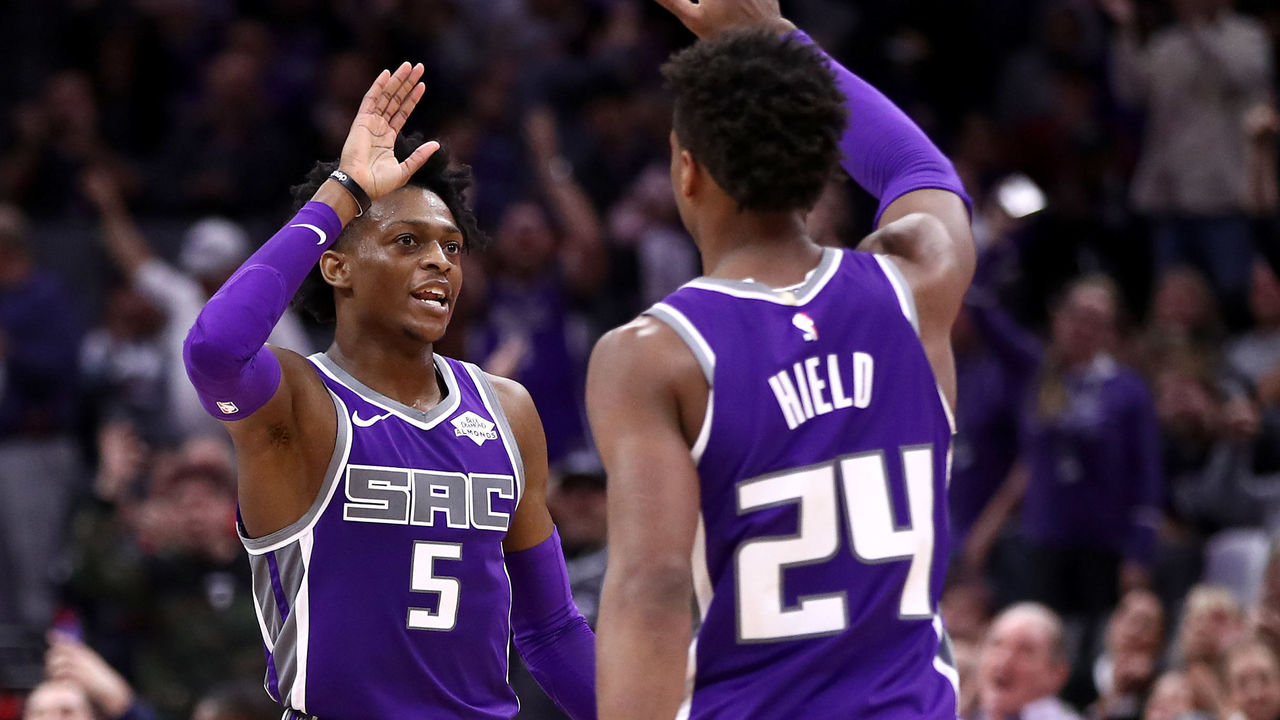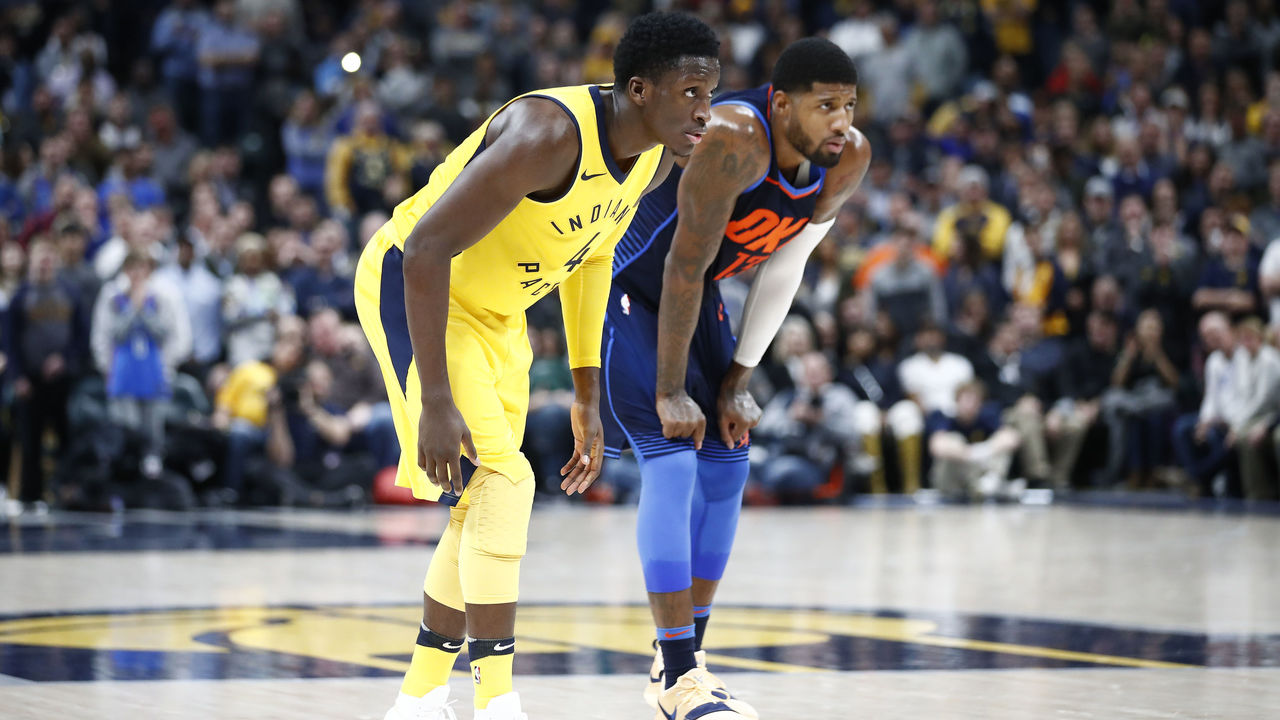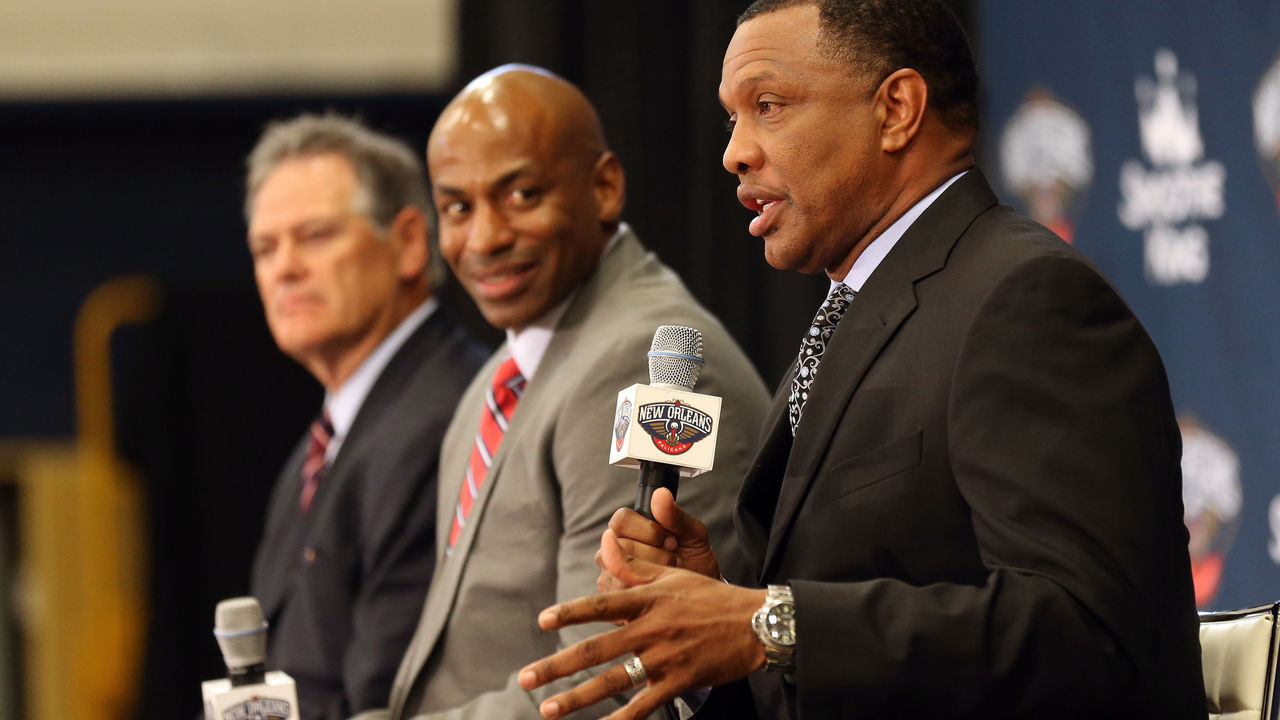Pacers and Kings offer Pelicans blueprints for life without Davis
The fact that the New Orleans Pelicans will trade Anthony Davis in the coming months doesn't necessarily mean the team's future is bleak. It all depends on whether the front office can outline and execute a coherent plan for the future.
After all, New Orleans should receive a king's ransom from whichever team acquires the superstar big man, who turns 26 in March. The Los Angeles Lakers are reportedly offering just about every prospect at their disposal along with future picks, and the Boston Celtics could part with either Jayson Tatum or Jaylen Brown if the Pelicans wait until the summer. A handful of mystery teams in the mix could drive up the bidding as well.
While losing Davis is devastating, it presents a golden opportunity for the Pelicans to reset. The Sacramento Kings and Indiana Pacers offer recent examples of teams that improved after dealing away disgruntled stars, and the Pelicans should pay close attention to their approaches.

Sacramento flipped DeMarcus Cousins to the Pelicans at the trade deadline in 2017. Within two years of the deal, the Kings have the better record. Cousins played 65 games in New Orleans before tearing his Achilles, and the Pelicans got nothing when he walked in free agency.
For the Kings, meanwhile, trading Cousins became the inflection point in the franchise's tortured existence. Sacramento shifted its focus to a rebuild, and the early results have been encouraging. An exciting young core emerged from the wreckage, and the Kings sit above .500 in February for the first time since 2005.
Buddy Hield, the crown jewel of the Cousins trade, didn't show much in New Orleans - but he's come into his own this season. Hield leads the Kings in scoring at over 20 points per game, and his tireless off-ball movement is vital to the offense. He's shooting 46 percent from deep on 7.5 attempts per game, making Kings owner Vivek Ranadive's ambitious labeling of Hield as "big like Klay, shoots like Steph" somewhat accurate.
The Kings also received a lottery pick from the Pelicans in the Cousins deal, and they later flipped it into Justin Jackson and Harry Giles. Though both players lack polish, Jackson is a developing 3-and-D wing, while Giles is showing flashes of brilliance after becoming fully healthy for the first time since high school. At worst, they're cost-controlled rotation pieces the Kings can re-sign on the cheap if they blossom into something more.
Cutting ties with Cousins created flexibility, too. Sacramento tanked for two seasons, which netted it top-five picks De'Aaron Fox and Marvin Bagley. The Kings were also able to avoid paying Cousins the max, which would have been a disaster given his Achilles injury. Now they have one of the cleanest cap sheets in the league, with just $46 million in guaranteed money heading into the summer.
In the bigger picture, dealing Cousins galvanized one of the league's most downtrodden and least trusting fan bases. The Kings stepped off the treadmill of mediocrity, cut ties with a perpetual malcontent, accumulated a handful of young prospects, and gave their fans a legitimate reason to be hopeful for the first time in a dozen years.

Indiana's handling of Paul George's trade request provides another blueprint for the Pelicans. Like Davis, George grew tired of carrying a small-market franchise and tried to force his way to Los Angeles.
The Pacers resisted lowball offers from the Lakers and ultimately flipped George to the Oklahoma City Thunder for Victor Oladipo and Domantas Sabonis in an effort to remain competitive. The deal was widely mocked at the time - Oladipo had been branded a bust after an underwhelming start to his career, and Sabonis didn't show much as a rookie.
Indiana, however, saw Oladipo as a former No. 2 pick brimming with untapped potential and considered Sabonis miscast as a stretch-five to create driving lanes for Russell Westbrook. The Pacers made a bet that both players would be more productive in a different situation.
Oladipo apparently just needed a change of scenery; upon his arrival, he blossomed into an All-NBA player. He reshaped his body to unlock his otherworldly athleticism, developed a lethal step-back three that made him a complete scorer, and became the clutch performer that George never was for the Pacers. More importantly, Oladipo gave the team a centerpiece to build around.
Sabonis was a revelation in his own right. He found his comfort zone as the focal point of the Pacers' second unit last season and grew into one of the most efficient finishers in the league. Sabonis is averaging 14.2 points, 9.4 rebounds, and 2.7 assists in 25 minutes per game while shooting 60 percent from the field. He should be a strong contender for both Sixth Man of the Year and Most Improved Player.
Nobody predicted this at the time of George's departure. Vegas bookmakers set Indiana's win total at 30.5 games for 2017-18, assuming the team would tank. The Pacers finished with 48 wins and raced out to a 32-15 start this season before losing Oladipo to a freak injury.

The reason Sacramento and Indiana could pivot into sustainable rebuilds after dealing their stars is that their front offices had clear visions for the future. It's not certain whether the same is true in New Orleans.
Say what you will about Vlade Divac's apparent bumbling, but the Kings are in a much better place than they were before he took control of basketball operations. Sacramento overwhelmingly came out on top in the Cousins deal, and Divac fleeced the Phoenix Suns in 2016 to steal Bogdan Bogdanovic in exchange for Marquese Chriss. The Kings sit a half-game out of the eighth seed in the ruthless Western Conference even though their rotation features just one player over the age of 30.
Kevin Pritchard finished third in Executive of the Year voting after he flipped one season of George into two franchise cornerstones. Indiana's been one of the most successful teams in the East over the past two seasons, and the Pacers can create as much as $50 million in cap room this summer if they choose to reshape the roster.
Sacramento decided to tank, while Indiana stayed competitive. So what's the plan in New Orleans? Nobody knows. Who's calling the shots? That's something of a mystery too. And unless the Pelicans adequately address those questions before dealing Davis, they won't be able to capitalize on the opportunity.
Dell Demps, who holds the title of general manager, was called out by former commissioner David Stern as "lousy" at the job. Disgraced executive Danny Ferry is also lurking in the background. Overseeing the entire operation is New Orleans Saints executive Mickey Loomis. That setup hardly screams organizational optimization, never mind organizational unity.
Trading their star is just the first in a series of choices that will shape the Pelicans' future. Of course, there's the matter of identifying the right returning players in a deal for Davis. Still, the team will need to make tough decisions about veterans like Jrue Holiday, Nikola Mirotic, and E'Twaun Moore - all of whom should be moved at the deadline if New Orleans wants to tank. The Pelicans also need to determine whether they think head coach Alvin Gentry is the right candidate to oversee a rebuild, or if they'd prefer another coach with more experience in player development.
That's why the Pelicans should address their front office before making any major moves. It's imperative for the person who executes the Davis trade to be the same person who oversees the transition. Whether it's Demps, Ferry, Loomis, or an external candidate, the Pelicans need someone with a clear long-term vision to take charge after Davis is gone.